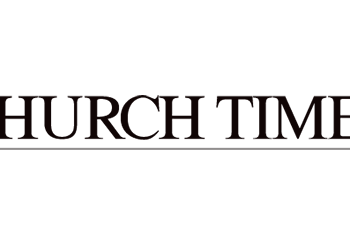Democrats are lashing out at the eight senators from their own party who voted to reopen the government without securing more federal subsidies for the Affordable Care Act — but a new survey of small business owners reveals that Democrats’ favorite health care policy may not be playing well with the American electorate.
“The cost of health insurance has gone up every year since the ACA,” a Pennsylvania manufacturer told the National Federation of Independent Business. “No small business can keep up with the costs.”
Health insurance premiums rose 143% in the first six years after the ACA, colloquially known as Obamacare, took effect. Next year, premiums are set to rise 26% on average. Democrats say these rising premiums justify Congress approving $24.6 billion worth of taxpayer-funded subsidies, while Republicans say the need to spend billions offsetting premium costs proves that the ACA is unaffordable and unsustainable.
“The increase will surely kill many small businesses in the next couple of years,” the Pennsylvania manufacturer said. “Soon I will no longer be able to offer health insurance to my employees. In turn, this will cost me good employees.”
He’s not the only one feeling the crunch.
“It is becoming increasingly difficult to provide medical insurance that the company and employees can afford,” a manufacturer from Ohio added.
Obamacare prices were at the heart of the longest government shutdown in American history, which the Senate voted to break Monday night after 41 days. Republicans pushed for a continuing resolution to reopen the government, while Democrats refused to agree unless the measure included a one-year extension of ACA subsidies.
From the Senate Floor, Democratic Minority Leader Chuck Schumer (D-NY) argued preserving the ACA was essential.
“I must vote no [to reopen the government] because health care prices are so severe, so urgent, and so devastating for families back home,” Schumer said. “I cannot support this CR that fails to address the health care crisis.”
The National Federation of Independent Business’ optimism index fell 0.6 points in October, according to the report. The sharpest contributor to October’s dip was a deterioration in earning trends, with 25% of owners reporting lower profits. NFIB’s Chief Economist Bill Dunkelberg reported the government shutdown likely played a role, as the Uncertainty Index fell 12 points to its lowest reading this year.
Despite the pullback, optimism among small businesses remains three points above the low from earlier this year and above its 52-year average of 98. Confidence hit its lowest point in April amid market volatility and tariff-related uncertainty, before rebounding midyear as conditions stabilized.
The labor market continues to frustrate small employers. Like last month, small businesses reported a tight labor market with labor quality remaining the most significant problem in October. Small businesses report struggling to compete with large corporations offering higher wages, signing bonuses, and more comprehensive benefits.
The gap is most apparent in skilled trades, where 28% of small businesses reported job openings they can’t fill. Jobs for electricians, plumbers, welders, HVAC technicians, and construction workers are among the hardest to supply. Nearly half (49%) of small businesses in the construction industry reported not being able to find construction workers.
This trend was years in the making. Fewer young people have pursued vocational programs and many older, experienced tradespeople have retired. According to the United States Bureau of Labor Statistics, the average age in the manufacturing industry is 44 and the average age of a construction worker is 42, signaling an aging workforce.
However, there may be reason for cautious optimism. Recent studies suggest that Gen Z is increasingly turning toward trade careers, motivated by higher education costs and concerns that artificial intelligence could disrupt traditional white-collar jobs.
While overall small business optimism has cooled in recent months, the survey reports that business “won’t be pleasant until the shutdown is ended.” With the reopening of the government, many business owners expect the negative impacts of the shutdown to reverse.















